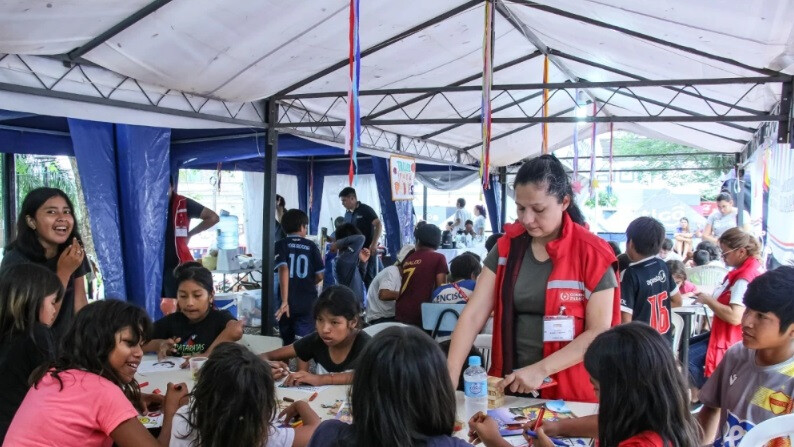
The 147 emergency hotline system of Paraguay's Ministry of Children and Adolescents (Ministerio de la Niñez y la Adolescencia, Minna) received a total of 487 calls reporting child rights violations in April alone, revealing 1,266 cases of children and adolescents at serious risk, including abuse, exploitation, and neglect. This figure starkly illustrates the severe crisis within Paraguay's child welfare system.
According to Minna's April report, these 487 calls identified a total of 1,019 children and adolescents in vulnerable situations. Gender-wise, 49% of the at-risk children were boys and 51% were girls, indicating that dangerous situations affect children across the board without gender bias.
Notably, the 147 system's statistical report details the specific rights violations experienced by children, going beyond mere reporting numbers. Among the 1,266 cases of rights violations reported in April, 'abuse' accounted for the highest proportion, with 404 cases including physical and emotional maltreatment. This shocking figure suggests that Paraguayan children are alarmingly exposed to violence within their homes and communities.
Furthermore, the number of children and adolescents living on the streets is also critically high. The report identified 215 children found on the streets in April, highlighting their urgent need for protection and support. These children, deprived of basic necessities in harsh environments and exposed to the risks of crime and disease, represent another serious problem facing Paraguayan society.
Of even greater concern are the statistics related to child sexual offenses. In April, 80 cases of sexual abuse and 18 cases of sexual exploitation were reported. This indicates that Paraguayan children are severely vulnerable to sexual violence and are not adequately protected from such crimes. Child sexual offenses are grave crimes that inflict lifelong physical and psychological trauma on victims, demanding the active attention and eradication efforts of society as a whole.
Minna stated that all reported cases have been forwarded to the relevant judicial system authorities for follow-up. However, doubts remain regarding the judicial system's processing speed and the adequacy of the support system for child victims, given the high number of reported cases. Beyond simply transferring cases, there is a growing call for strengthening the entire system to ensure that victims receive substantial protection and healing, and that perpetrators face severe penalties.
Paraguay's child rights protection system has long been criticized for various shortcomings, including insufficient budget support, a lack of specialized personnel, and slow judicial processing. The socio-economic difficulties exacerbated by the COVID-19 pandemic have further placed children in more vulnerable situations, a key factor contributing to the increase in child abuse and neglect cases.
International child rights organizations have consistently urged the Paraguayan government to strengthen its child protection system. Organizations like UNICEF emphasize the need for the government to increase funding for child protection, train more professionals, and improve the efficiency of the judicial system. They also highlight the importance of enhancing education and awareness campaigns to prevent child abuse and establishing community-based child protection networks.
This latest report from the 147 system serves as a stark reminder of the dire reality faced by children in Paraguay. The shocking number of 1,266 cases underscores the urgent need for society to no longer overlook the issues of child abuse and neglect. The Paraguayan government and society as a whole must take this report seriously and proactively implement substantial measures to create an environment where children can grow up safely and healthily. This is not merely a national issue but a shared responsibility of humanity to ensure the fundamental rights of children, who are the future of society.
[Copyright (c) Global Economic Times. All Rights Reserved.]



























